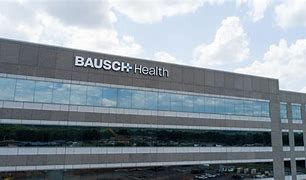JPMorgan says Bausch spinoff could double investors’ money
- Posted on August 31, 2020
- Stock Spinoff
- By Glory

Bausch Health Companies earlier announced its plan to spin off its eye care business, Bausch + Lomb. This announcement came after the company released its June quarter results earlier this month.
On August 6, the company reported that its sales in the second quarter fell 23% to $1.7 billion, having a loss of $326 million, or 92 cents per share. According to Bausch, its cash earnings in the quarter were approximately $622 million, down from $880 million from the same period a year ago.
Many investors are optimistic about the spinoff plan, especially JPMorgan analyst Chris Schott who said in a Monday report that the move could double investors’ holdings. Schott believes that the spinoff would deliver two securities that will be worth at least $32 compared to the $16.85 the company’s stock traded on Monday.
Wall Street is also pressuring the company for a spinoff for over a year. If Bausch spinoff plans finally actualize, the spinoff could happen between late 2021 and early 2022, according to the JPMorgan analyst.
“While Bausch’s recovery from COVID headwinds appears slower than anticipated, we see this as a near-term issue and forecast a full recovery for the company’s business as we look out to 2021 and beyond,” Schott wrote.
The JPMorgan analyst also thinks that Bausch’s spinoff could trade at 15 times the $870 million in 2021 EBITDA which will in turn value the spun off company at $13 billion. While the remaining Bausch business could amount to 7.5 times the $2.7 billion in 2021 EBITDA. Adding the spinoff, the company’s stockholders will be left with two stocks worth more than $33 billion with the exclusion of Bausch’s $22 billion in debt. Schott rates Bausch stock at Overweight.
By spinning off the company’s eye-care business, Bausch + Lomb will get higher valuation as a stand-alone eye-care company like the Cooper Companies (COO), and Alcon (ALC). Chief Executive of Bausch, Joseph Papa said on the quarter’s earnings call that the company had overcome many of the problems he inherited from his predecessor. That is, from the time when the company was known as Valeant Pharmaceuticals International. The problems included an investigation by the Securities and Exchange Commission into the company’s accounting and disclosure surrounding its dealings with Philidor Rx Services, a pharmacy. The rebranded company, Bausch then had to pay $45 million to resolve the investigation in July without admitting any faults.


Be the first to comment!
You must login to comment